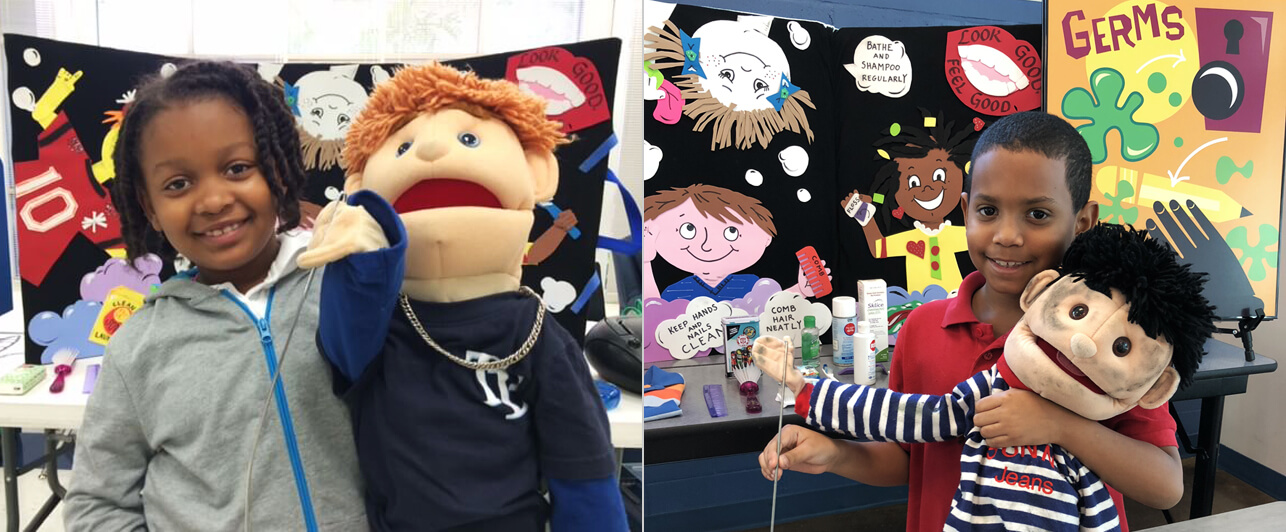
According to the Centers for Disease Control (CDC), hand washing is like a “do-it-yourself” vaccine. However, a recent study published by US Department of Agriculture (USDA) determined that 97% percent of us are failing to wash our hands utilizing proper hand washing techniques as defined by the CDC! In MORE HEALTH’s Personal Hygiene “Scrubba Bubba” Lesson, second graders learn proper personal hygiene habits that help fight off germs and stay healthy.
As we begin the new school year, discuss the importance of hygiene with your family. Some good times to wash hands include immediately after using the restroom, before and after mealtime, when suffering from illness, after touching an animal, after coughing, and after blowing the nose. It is important to wash the fronts and palms, between fingers, both wrists, and under fingernails. The hand washing process should last for a full 20 seconds. Do not forget to dry hands completely because germs tend to live in the water and dirt left on hands. Also remember to use a paper towel to turn off the water if possible. This prevents hands from touching germs on the faucet. If soap and water are not available, the CDC recommends using an alcohol-based hand sanitizer with at least 60% alcohol. However, hand sanitizer will not be as effective when hands are visibly dirty or grimy. Check out this helpful hand washing clip from the CDC!
Do not forget that germs can also damage teeth. If germs mix with the sugar left on teeth after eating, plaque is formed. If plaque is left on teeth, acid forms and will then cause cavities. In fact, tooth pain from poor oral hygiene is a leading cause of absence in school! Brush teeth at least two times a day for two minutes at each brushing, floss at least once day, and visit the dentist twice a year.
Additional precautions to prevent the spread of germs include avoiding contact with people who are sick, coughing into the elbow rather than hands, refraining from sharing combs/brushes or hats with others, bathing and shampooing hair regularly. The CDC encourages parents to stop the spread of illness or germs to others by keeping children home when sick.

